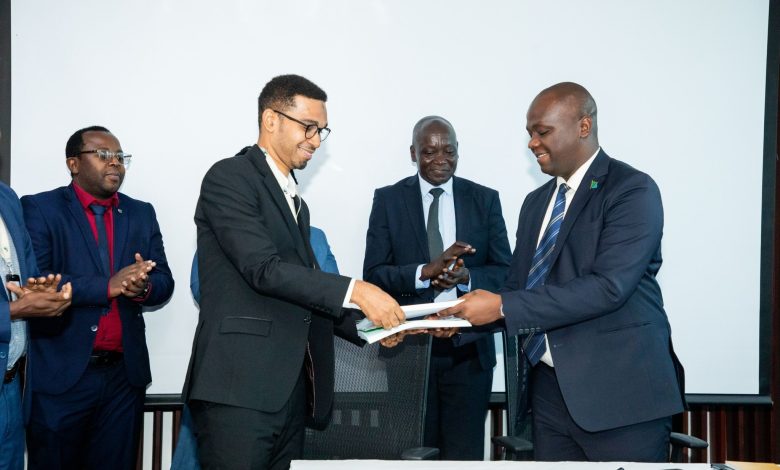
DODOMA, Nov 7 (NNN-DAILYNEWS) — IN a bid to harmonise the government systems, the Ministry of Information, Communication and Information Technology on Monday signed two significant contracts worth 43.3bn/- to connect 661 public institutions.
The move will help to enhance the institutions communication capabilities.
The Permanent Secretary (PS) in the Ministry of Information, Communication and Information Technology, Mohammed Khamis Abdulla, who is also the chairman of the Digital Transformation Working Group (DTWG), said the contracts have been signed by two companies specialising in digital transformation.
The first agreement worth 19.97bn/- was signed between the ministry and MS Soft-tech which entails the commissioning of active and passive network equipment and power backup for government connectivity (Phase I Lot I).
The second contract, worth 17.26bn/-, was signed between the ministry and MS Emerging Communication Limited. This contract covers the supply, installation and commissioning of active and passive equipment for government connectivity (Phase I Lot II).
The signing was done during the inaugural meeting of the Digital Transformation Working Group (DTWG) within the National Business Council (TNBC). This group comprises 16 members, with an equal split between the public and private sectors.
The signing of these contracts was carried out in the presence of distinguished guests, the media and key figures. It marked the initiation of a new era of digital transformation in the country.
The ceremony was attended by key individuals, including the Executive Secretary of TNBC, Goodwill Wanga who is also the Director in Charge of ICT Service and Systems and TCRA Director General, Dr Bakari Jabiri, along with other prominent stakeholders from both the public and private sectors.
PS said that every company has been given 18 months to complete the work.
Commenting on implementation of the work, the PS expressed confidence that within the given 18 months, connectivity would be established for the 661 public institutions currently lacking communication infrastructure.
“In terms of implementation, this contract has an 18-month timeframe. We anticipate that within the given timeframe we will achieve connectivity for the 661 public institutions that currently lack communication infrastructure,” he stated.
He also highlighted the readiness of Tanzanians to embrace digital revolution and a digital economy, stressing that it’s the government that has been slightly behind in making this transformation.
Abdulla further mentioned that, compared to many African countries, Tanzania’s readiness for digital economy and digital transformation is not bad. The government is striving to bridge the gap between the private sector and the public sector in terms of conventional and digital economy usage by establishing a national task force.
“We have decided to establish a national task force that will bring together the private sector and the public sector,” explained Abdulla.
The PS further elaborated on the government’s vision to ensure that its systems are interconnected to facilitate service delivery.
The goals of digital transformation include unifying tax collection systems (one-stop centre), leveraging digital revolution to enhance various enabling systems, boosting and fortifying tourism in the country and establishing robust interconnected systems.
To achieve all these objectives, Abdulla stressed the importance to review laws, policies and regulations that guide the use of digital technology without stifling investment.
He noted that excessive regulation can hinder the growth of the digital economy in our nation. — NNN-DAILYNEWS





